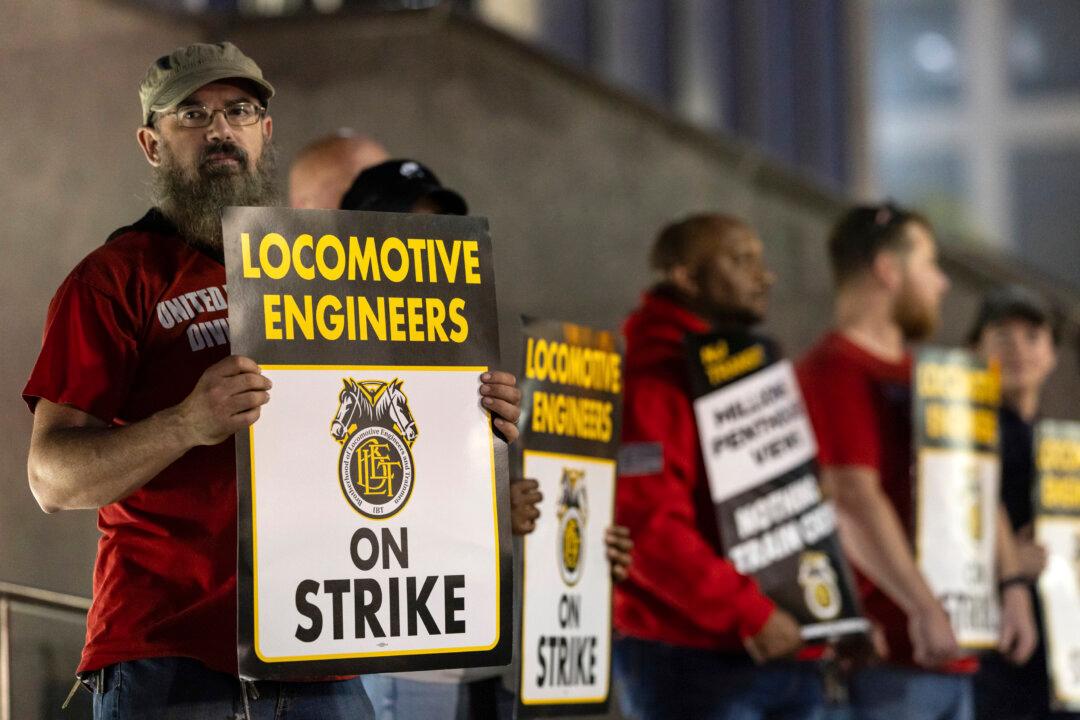Train service between New Jersey and New York remained suspended for a second day Saturday, as negotiations continued between union leaders and state officials over a contract that could bring rail engineers back to work.
NJ Transit President Kris Kolluri and New Jersey Gov. Murphy scheduled back-to-back meetings with the Brotherhood of Locomotive Engineers and Trainmen (BLET) on both Saturday and Sunday in an effort to end the strike before the Monday morning rush hour.





